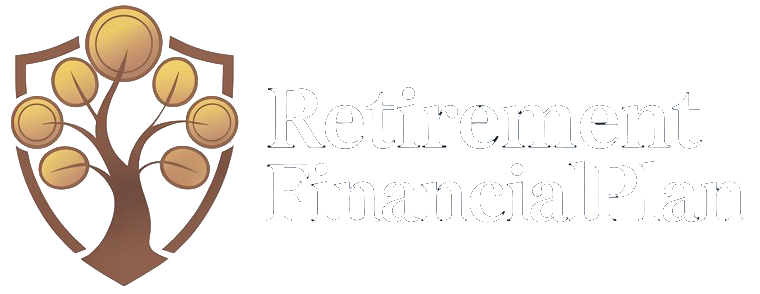It’s been nearly a decade since the last major overhaul of the U.S. tax code, and as 2026 approaches, advisers are preparing for what may be one of the most consequential resets in recent memory.
News has been circulating for months about the One Big Beautiful Bill Act (OBBB) since it was signed in July, but now is the time when many of its implications are beginning to take shape as we head toward their effective date in 2026.
The OBBB has replaced uncertainty with permanence, locking in lower individual income tax rates, expanding deductions for business owners and solidifying estate exemptions that had once been scheduled to expire.
From just $107.88 $24.99 for Kiplinger Personal Finance
Be a smarter, better informed investor.
CLICK FOR FREE ISSUE
Sign up for Kiplinger’s Free Newsletters
Profit and prosper with the best of expert advice on investing, taxes, retirement, personal finance and more – straight to your e-mail.
Profit and prosper with the best of expert advice – straight to your e-mail.
Kiplinger’s Adviser Intel, formerly known as Building Wealth, is a curated network of trusted financial professionals who share expert insights on wealth building and preservation. Contributors, including fiduciary financial planners, wealth managers, CEOs and attorneys, provide actionable advice about retirement planning, estate planning, tax strategies and more. Experts are invited to contribute and do not pay to be included, so you can trust their advice is honest and valuable.
On the surface, the new environment feels simpler. In reality, it raises the bar for the financial planning profession. A tax code that stays still doesn’t reduce the need for expertise; it amplifies it.
Advisers now face a different kind of challenge: transforming stability into strategy.
The changes introduced by the OBBB include:
Permanent lower tax brackets. The Tax Cuts and Jobs Act of 2017’s reduced individual income tax rates are now permanent, preserving historically low brackets and expanded standard deductions.
Estate and gift tax exemption increase. The unified exemption rises to $15 million per person ($30 million per couple), permanently indexed for inflation.
The higher exemptions for wealth transfer provide new flexibility for families, business owners and legacy planning strategies.
Temporary enhanced state and local tax (SALT) deduction (2025-2029). The cap increases to $40,000 for modified adjusted gross income (MAGI) under $500,000, with a steep phase-out and reversion to $10,000 in 2030.
Many taxpayers will enjoy a few years of relief before the cap reverts, making timing and income management more critical than ever.
New itemized deduction limitation (effective in 2026). Top-bracket taxpayers (37%) will see itemized deductions limited to a 35% effective benefit, creating a window of opportunity for charitable and deductible planning before the change takes effect.
New temporary deductions and credits (2025-2028):
- No tax on tips and overtime (up to $25,000 each)
- A new deduction of $6,000 per taxpayer for people age 65-plus
- Auto loan interest deduction for U.S.-assembled vehicles (up to $10,000)
Child and family enhancements. The child tax credit rises to $2,200 per child (permanent), and so-called Trump Accounts introduce a $5,000/year child savings vehicle with federal seed funding.
Business tax provisions. Section 199A (20% qualified business income deduction) and 100% bonus depreciation are made permanent, while R&D expensing and business interest deductions are restored and liberalized.
Permanent relief for business owners. Key provisions for pass-through entities, depreciation and research expensing are no longer set to expire, ensuring continued support for entrepreneurial growth.
Long-term considerations are easier now
The permanence of lower brackets allows for the kind of long-term modeling that’s been elusive since 2017.
Roth conversions, charitable giving and capital gains harvesting can all be viewed through a multiyear lens.
The absence of looming sunsets gives advisers a chance to coordinate across disciplines, working alongside accountants, attorneys and insurance specialists to build truly integrated wealth plans.
When the framework is predictable, planning can finally become architectural instead of tactical.
Yet markets remain unpredictable, and that’s where the profession’s human element matters most. If the last few years have taught us anything, it’s that volatility is the one constant.
Advisers who guide clients through uncertainty, not away from it, will be best positioned to lead in this next phase. Helping clients understand the behavioral side of investing — including the fear that can derail discipline — will remain just as critical as tax or investment strategies.
Interested in more information for financial professionals? Sign up for Kiplinger’s new twice-monthly free newsletter, Adviser Angle.
Periods of market weakness often present the greatest opportunities. When asset values dip, so do conversion costs and gifting valuations. Proactive advisers can help clients take advantage of those temporary conditions to create lasting tax advantages.
Volatility doesn’t have to be a setback; it can be a planning tool, provided communication is timely and clear.
Diversification, too, will continue to test both advisers and clients. It rarely stands out in any single year but remains the foundation of long-term wealth preservation.
As the economic landscape becomes more complex, with global elections, shifting interest rates and evolving corporate earnings trends, diversification is what turns unpredictability into endurance.
Advisers who can contextualize that truth will keep clients grounded when the headlines turn noisy.
The importance of tax strategy
But perhaps the most defining difference in 2026 will be the rise of tax strategy as the profession’s key differentiator. Investment performance may fluctuate, but the ability to minimize lifetime tax drag and enhance efficiency is measurable, durable and directly tied to advisor value.
The OBBB gives professionals a stable backdrop to design and execute those strategies.
In practice, that means looking at every decision through a tax-integrated lens.
- How do withdrawals affect future brackets and Medicare surcharges?
- When should a client harvest gains or accelerate income?
- How can charitable intent align with tax savings?
These aren’t once-a-year conversations — they’re the new rhythm of holistic financial planning.
Technology and automation will continue to support this work, but they can’t replace the perspective advisers bring. The future of advice lies not just in data, but in dialogue.
Clients want to understand how their financial lives fit together and need reassurance that their plan accounts for what’s controllable, even when the world isn’t.
The OBBB is more than just another piece of tax legislation. It represents a chance to help clients create stability instead of reacting to uncertainty.
For an adviser, it’s an invitation to elevate yourself from problem solver to plan designer, to turn clarity into confidence and to ensure that strategy, not circumstance, drives outcomes.
Related Content
This article was written by and presents the views of our contributing adviser, not the Kiplinger editorial staff. You can check adviser records with the SEC or with FINRA.
TOPICS
Adviser Intel
Adviser Angle

